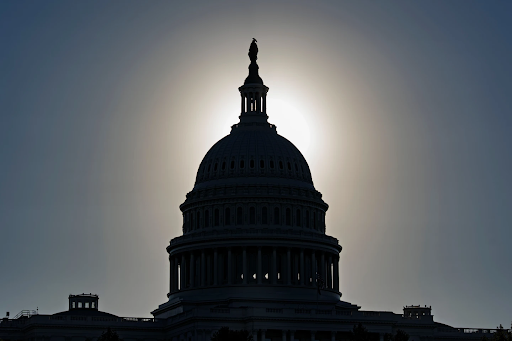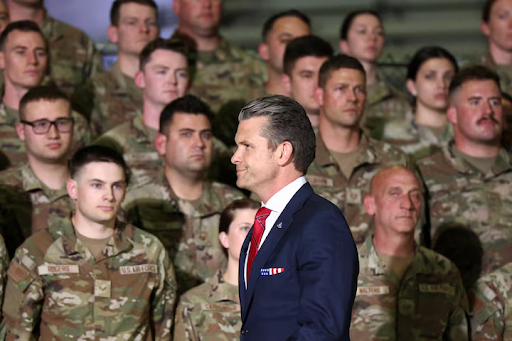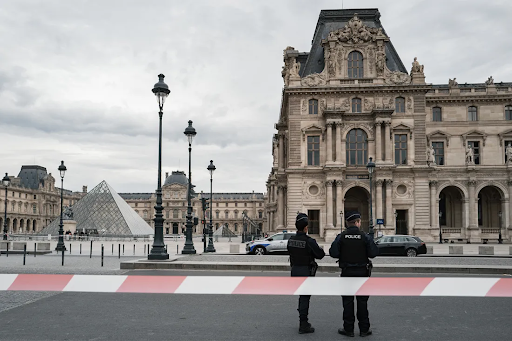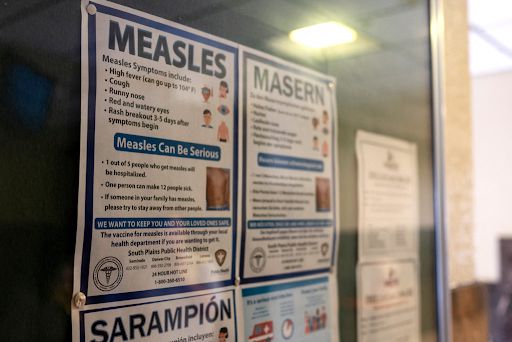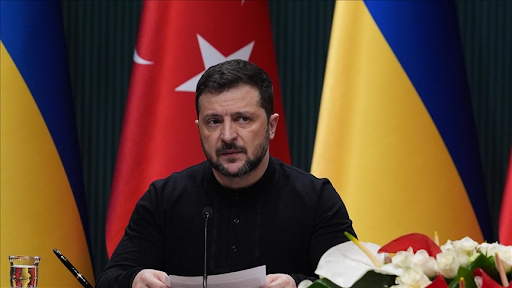Around 83% of all American foreign aid has been abruptly shut off by the Trump Administration in the past few months of President Trump’s presidency, says Geneva Solutions. The complete evaporation of this assistance has eliminated humanitarian programs in developing and war-torn countries globally as major U.S. Agency for International Development (USAID) cuts take place. Trump ordered the suspension of the U.S. Refugee Admissions Program (USRAP) on his first day as president, halting the entry of refugees from overseas into the U.S. and support for refugees currently resettling. This suspension was granted over concerns of resource availability. With the large elimination of support for refugees and struggling countries both in and outside the United States, the Trump Administration is sending the message that refugees are not welcome. Yet, the Trump Administration welcomed 59 white South Africans on Monday, May 12, 2025 at Dulles Airport in Washington, D.C.
This seemingly out of place exception has been heavily criticized by various humanitarian groups, South African and American legislators, and the Episcopal Church. In a press conference on May 12, Trump said “It’s a genocide that’s taking place that you people don’t want to write about…White farmers are being brutally killed, and the land is being confiscated in South Africa.” BBC reported that these claims often circulate right wing South African groups due to misinformation and attacks on farmers. The South African President Cyril Ramaphose had strong opinions on Trump’s plan, saying “As South Africans, we are resilient. We don’t run away from our problems. We must stay here and solve our problems. When you run away you are a coward, and that’s a real cowardly act” according to BBC. On the day the refugees arrived in the U.S., Ramaphose rejected Trump’s claims of genocide, saying they were “not true”, states BBC. Loren Landau from the African Center for Migration and Society at the University of the Witwatersrand said the Afrikaners aren’t “specially victimized because of who they are” and stated that the white minority is still among the most privileged in South Africa according to Al Jazeera.
In February, Trump released an executive order cutting off funding to South Africa citing their government’s alleged persecution of South Africans, known as Afrikaners. They are an ethnic minority in South Africa, descended from Western European settlers in the 17th century that ruled during the country’s infamous apartheid that lasted from the mid to late 1900s. He referenced Expropriation Act 13 of 2024, an affirmative action and land expropriation policy as an example of the discriminatory behavior against Afrikaners. The original intentions of the Act were to cancel out apartheid-era prejudiced policies. Additionally, Trump criticized South Africa’s condemnation of Israel’s actions in Gaza as genocide and said this was another reason for the assistance cut. The order stated the U.S. government would “promote the resettlement of Afrikaner refugees escaping government-sponsored race-based discrimination” states the White House. The spotlight on this particular discrimination is interesting because of the administration’s blatant ignorance towards other various foreign governments’ persecution of ethnic minorities, like Ughyhurs in China.
Politicians and advocates also brought attention to how the Afrikaner refugees were processed at an abnormally fast speed compared to the thousands of other refugees who seek asylum in the United States who often wait years in dangerous conditions. Conveniently, Senior Advisor to the American President, Elon Musk, was born in South Africa into a wealthy family which critics have taken an interest in. He lived for around 18 years in South Africa under the apartheid and has continually made statements about alleged racism towards Afrikaners in recent years. Musk’s bias may have influenced Trump’s decisions to specifically target South Africa in his criticisms and programs, raising questions of favoritism in presidential actions.
On the same day that the refugees arrived, Tammy Bruce, the State Department spokesperson released a press statement saying “in alignment with the administration’s America First foreign policy agenda…America will take action to protect victims of racial discrimination.” On April 22, Secretary of State Marco Rubio released a press statement announcing the beginning of a “comprehensive reorganization plan” to refocus foreign policy initiatives onto cutting agencies that are “misaligned with America’s core national interests” and strengthening the Department according to the U.S. Department of State. Trump first mentioned this slogan and plan in 2016 with his first presidential run with strong themes of non-interventionism and protecting the American people. The slogan “America First” originated in the 1880s with the Republican party but became widely known with Woodrow Wilson’s usage in a speech about neutrality, according to an interview with Sarah Churchwell with the Smithsonian. It was then used as Wilson and his opponent’s presidential slogan which isolationists took a liking to. In the 1920’s, the Ku Klux Klan adopted the phrase during their rise in power and popularity. By the 1930s, the slogan was claimed by other American extremist far-right groups and has been associated with various different nationalist, xenophobic, and anti-semitic persons. “America First”’s hateful history was surprisingly not a deterrent to Trump, who started using the phrase in his 2016 campaign and presidency. Americans who agree with the anti-immigrant and nativist sentiment of the phrase’s usage tend to rally behind “Make America Great Again.” Churchwell, an American author of “Behold America” which covers the history of both phrases, said in an interview with Vox “the idea then, as now, was that the true version of America is the America that looks like me, the American fantasy I imagine existed before it was diluted with other races and other people”. Several journalists have also criticized the usage, theorizing that the slogan’s hateful history aligns with Trump’s values. In the case of the South African refugees, the inferred white supremacist element of “America First” would explain why white Afrikaners are being prioritized over other countries that previously received assistance from the U.S.
President Ramaphosa is set to meet Trump on May 21, 2025 to discuss the conflicting statements between the two countries. These talks may lead to a reformed refugee program by the Trump administration but has large potential to worsen tensions.



